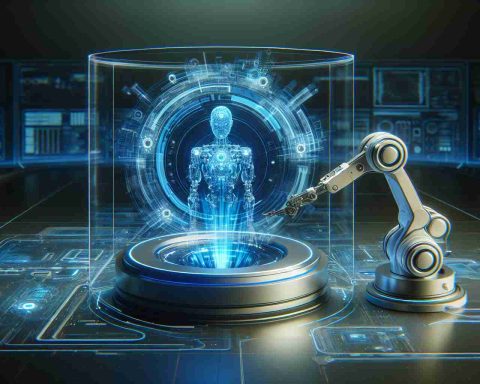A recent panel discussion hosted by the Women’s Circle at the Warsaw Bar Association tackled the implications of artificial intelligence on legal recruitment. The conversation featured two prominent attorneys, who explored the evolving landscape of hiring within the legal profession and the essential traits that candidates need to stand out.
The incorporation of AI in legal recruitment is still in its infancy, according to a leading partner from a recruitment agency. While traditional recruitment methods remain predominant, she noted that large international firms are already using AI tools to streamline the resume evaluation process, identifying potential candidates at initial screening stages.
Some challenges faced by job seekers relate to AI’s rigidity in evaluating qualifications. For instance, applicants attempting to switch practice areas may find their CVs dismissed without flexibility in criteria, limiting diverse talent from being recognized. This highlights the importance of personal connections within the recruitment realm, where dialogue with recruiters can illuminate a candidate’s qualifications and motivations beyond what AI metrics may indicate.
Attributes that recruiters currently seek include adaptability and breadth of knowledge. Candidates who possess dual expertise in areas like energy and contract law, coupled with strong communication skills, are increasingly favored. This shift emphasizes the need for legal professionals to be well-versed in English, as proficiency at a high level is often a prerequisite in today’s competitive job market.
In summary, those navigating the legal job landscape must understand the nuances of AI in recruitment while fostering essential skills and connections.
Understanding Recruitment Challenges in the Age of AI
In an era where artificial intelligence (AI) occupies a central role in various industries, recruitment processes are undergoing significant transformations. The legal profession is not exempt from these shifts. However, as AI continues to evolve, it presents a host of challenges and opportunities for job seekers and recruiters alike.
Key Questions and Answers:
1. What are the primary challenges of AI in recruitment?
One major challenge is the potential for bias in AI algorithms. If the data fed into the system includes biased information, the AI may replicate these biases, leading to unfair treatment of certain candidates based on gender, race, or educational background. Moreover, AI tools often lack the human insight necessary to discern soft skills, cultural fit, and potential that are not easily quantifiable.
2. How can candidates effectively leverage AI tools?
Candidates can use AI for self-promotion. For example, they can enhance their digital presence using platforms like LinkedIn, optimizing their profiles for keywords that AI algorithms may be scanning. Furthermore, tailoring resumes with specific terminologies from job descriptions can help candidates get past automated screenings.
3. What legal and ethical considerations arise from AI recruiting practices?
Ethical considerations include transparency in how AI systems evaluate candidates, as well as the need for mechanisms to challenge decisions made by algorithms. Employers must ensure compliance with anti-discrimination laws and should actively seek to minimize bias in their tools.
Advantages and Disadvantages of AI in Recruitment:
Advantages:
– Efficiency: AI can sift through large volumes of resumes quickly, identifying qualified candidates much faster than traditional methods, which allows recruiters to focus on more qualitative aspects of hiring.
– Consistency: AI provides standardized evaluations, ensuring that all candidates are assessed based on the same criteria, which can help improve fairness in the selection process.
– Enhanced Data Analysis: AI tools can analyze trends in hiring data, enabling employers to make data-driven decisions about talent acquisition strategies.
Disadvantages:
– Risk of Exclusion: Over-reliance on AI may exclude qualified candidates who do not fit typical patterns or who possess unconventional backgrounds that may not be recognized by the algorithms.
– Limited Human Interaction: AI systems cannot replicate the nuanced understanding and emotional intelligence of human recruiters, leading to potential misinterpretations of a candidate’s capabilities or fit within a company culture.
– Dependency on Data Quality: The effectiveness of AI in recruitment is heavily dependent on the quality of the data that is inputted. Poor or biased data can lead to flawed hiring decisions.
Conclusion:
As AI continues to be integrated into recruitment processes across the legal sector and beyond, understanding its implications is essential for both candidates and employers. Professionals must navigate the landscape strategically, leveraging both technological tools and interpersonal skills to refine their recruitment efforts and outcomes.
For more insights into the evolving intersection of technology and recruitment, you can visit Forbes and HR Morning.

















